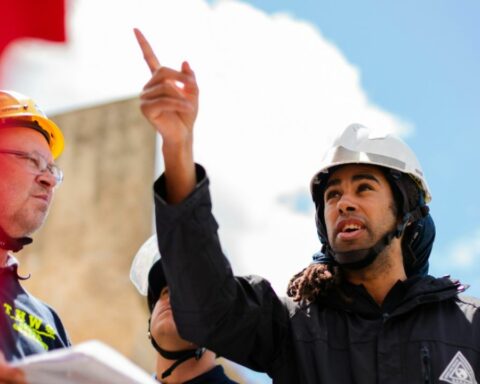This Thursday, May 26, in a new general council of the Comunes party, the change of command took place between the old national directive, headed by Ka Quiroz, and the new one, led by Marco Velarde, a 32-year-old sociologist who prevailed with 60% of the votes, in internal elections marked by low turnout: 969 militants voted, out of a register that amounts to more than 13,000 people eligible to vote. Elections that also had as a framework various questions that pointed to the legitimacy of the elections, coming from the defeated list, headed by the mayor of Macul, Gonzalo Montoya, who even made a call to challenge the results.
Velarde’s victory implies a continuation of Quiroz’s management, who had to face what, until now, has been one of the most complex moments within the party in its brief three years of history. This is the internal crisis derived from the scandal that broke out in November 2021 due to the publication of a report by Cyper that gave account of the money used during the campaign to the Regional Government of Santiago of the then militant Karina Oliva, in a complaint that involved several leaders of the community and that even splashed President Gabriel Boric and the minister of the Segpres, Giorgio Jackson. A chapter that the new helmsman seeks to overcome, betting on the strengthening of relations within the Broad Front and empowering Approve Dignidad as the conglomerate that – in his opinion – must define the route to follow within the Government.
-What do you think are the main challenges when assuming this presidency and how do you think they can overcome this internal crisis that they went through?
-I believe that our main internal challenge is to rebuild the party after the crisis and, for that, we have to strengthen the militancy throughout the country. But we also have a political challenge, which is to strengthen the government alliance, supporting our President Gabriel Boric and, also, what is the most important challenge this year, which is to win the exit plebiscite next year with the Approval 4th of September. When the crisis we all know happened, the party made the right decisions at the right time. The people involved in this case were expelled from the party and, subsequently, the militancy chose through the democratic path to follow a path that departed from problems of probity. The party has been strengthened and has followed the path of supporting the transformations of the current Government and has also opted to approve the new Constitution in the plebiscite on September 4.
-Beyond participating in the political committees or sitting at a table with the authorities, how do you project the real impact of Comunes within the Broad Front and I Approve Dignity? Do you think their voices will be heard in La Moneda?
-The truth is that what we seek is to influence the government’s agenda, first of all, materializing our program, mainly in relation to substantial reforms, but we also want to get involved in issues that are currently sensitive to the public, such as issues security and economic well-being. In that sense, we know that today there is a complex situation in these two areas, which is why we are going to have to prioritize and for this we are preparing ourselves to be able to influence and support the Government so that it can comply with broadening its social bases, but also directly supporting the welfare of the population.
-How are you going to achieve unity and cross-cutting agreements within the government coalitions, with there being obvious fractures between Democratic Socialism and I Approve Dignity?
-It is natural that in a coalition like the one that is currently governing, which is made up of two very different conglomerates, such as I Approve Dignity and Democratic Socialism, there are differences. The important thing is that these differences are discussed and contribute to the construction of a position of strength for the Government, which allows it to control the agenda and also overcome the problems of security and economy, which were legacies of the previous Government. To this end, President Boric has opened spaces for dialogue and listening to the different parties, but we are betting that the original government coalition, which is Approve Dignity, can be strengthened and also lead the current administration. I Approve Dignity is the coalition that must empower itself and lead the course of the transformations that are part of the program.
-If you are referring to an empowerment of Approve Dignidad within the ruling party, what do you think of the government’s approaches to sectors linked to the former Concertación? Do you think that the “transforming spirit” that you mention is betrayed?
-Governing in current times is complex, and we need a transversality that allows us to achieve the transformations that we proposed in the government program. In this sense, the incorporation of other political actors is necessary, and that includes the former Concertación, but from Approvebo Dignidad we bet that the growth of the government alliance must leave behind the traditional political class and now focus on including society. mobilized, that is, to the people who made us get here. In this sense, we are not lost and we believe that the Government’s alliance is mainly with the citizens and not with the traditional parties.








